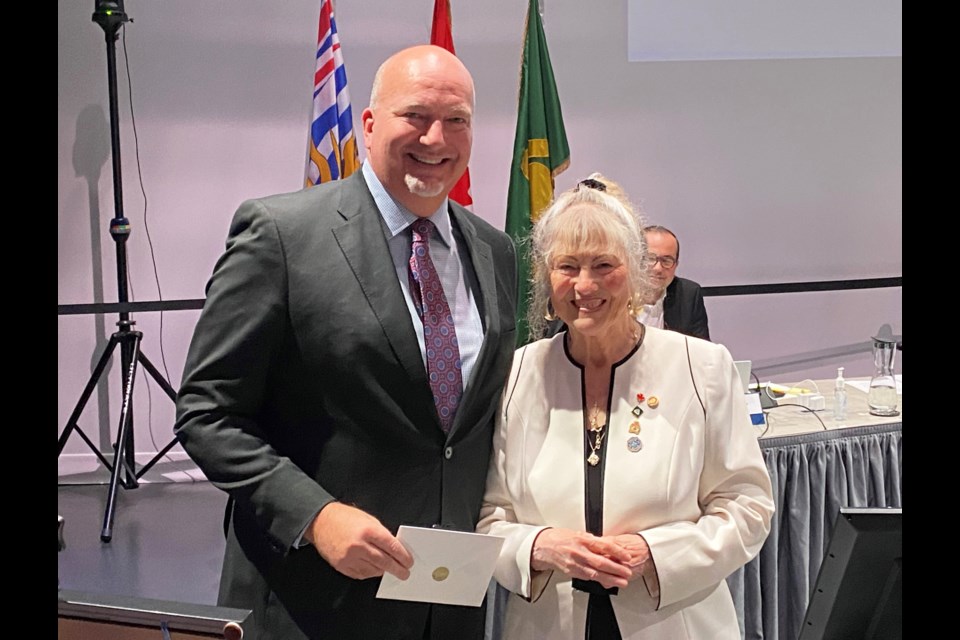It’s certainly going to be a very different feel at Delta Council with Lois Jackson no longer at the table.
First elected in 1972, Jackson, who didn’t seek re-election this year, attended her final meeting at the North Delta Centre for the Arts on Monday.
Thanking the many others she served with throughout the decades, saying they paved the way to make Delta a better place to live, it was an opportunity to reflect on the many changes the community has seen over the decades.
“In the 1970s and 80s, it was not unusual for council meetings to extend far into the night as we debated the best course of action for the community,” she said.
Jackson said she entered politics because she was worried about the community but that she also has concerns today, urging the new council to attend as many in-person meetings as possible to hear directly from residents, rather than rely on on-line meetings.
Except for one term, when she didn't run for re-election, she has served continuously.
She was also Delta’s mayor from 1999 to 2018 as well as chair of the Greater Vancouver Regional District for several years. Her final term was that of city councillor again.
In 1972, Jackson, a North Delta resident who campaigned for "orderly, planned quality growth patterns" and "preservation and production of agricultural lands," became the first female Delta alderman.
At that time, she was a married Sunday school teacher with three children, having also been the past chair of the North Delta Ratepayers Association.
One of 10 candidates in that election, Jackson captured the third and final seat up for grabs.
During that campaign, Jackson told the Optimist, "A woman's viewpoint on council has long been lacking."
The 1972 election included a referendum proposing municipal council increase the number of alderman from six to eight, a proposal that went down to defeat.
Delta’s population during those days had been growing rapidly since the opening of the George Massey Tunnel, bringing various pressures, challenges as well as ramifications that council is dealing with today.
That year also saw municipal council, which had Dugald Morrison as mayor, discuss the idea of acquiring Burns Bog as a nature park, while also making plans to turn the former Paterson Park harness race track into a "major community park."
The biggest story to emerge in late 1972 was the provincial government's announcement it would pass legislation preventing farmland from being rezoned for urban use.
A political survivor, Jackson had run with a variety of slates over the years as well as running as an independent candidate.
A Queen's Diamond Jubilee Medal recipient, she had long been considered a populist and her longevity in civic politics had often been credited to her ability to adapt to a changing landscape.
At her final meeting this week, she wished the new council good luck, and that will be watching.
Long-time councillors Bruce McDonald and Jeannie Kanakos, as well as Dan Copeland who served one term, also had their final meeting Monday, having decided to not run again in this month’s municipal election.



